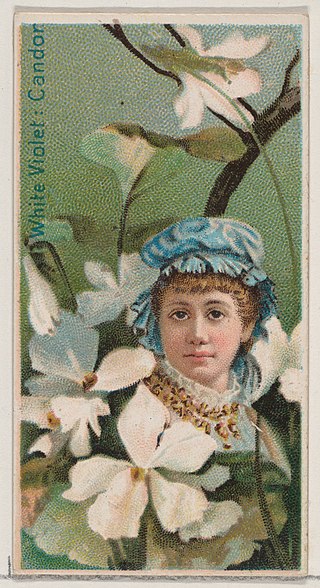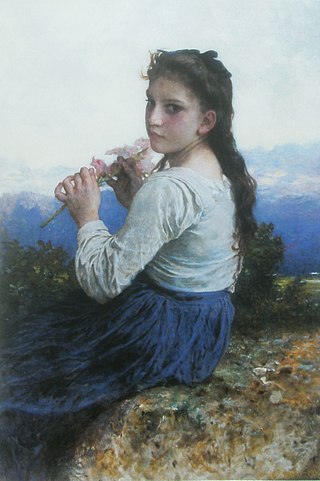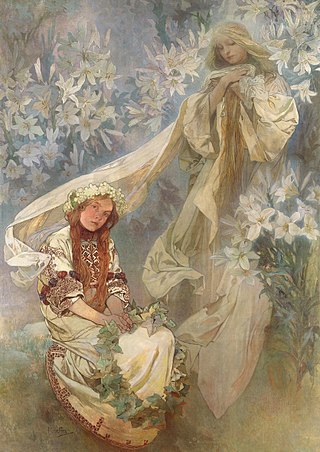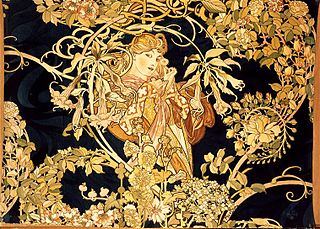Aline is a feminine given name which may refer to:
Aline is a feminine given name which may refer to:
Bernstein is a common surname in the German language, meaning "amber". The name is used by both Germans and Jews, although it is most common among people of Ashkenazi Jewish heritage. The German pronunciation is, but in English, it is pronounced either as or.
Ethel is an Old English word meaning "noble", today often used as a feminine given name.
Lina is an international feminine given name. Languages of origin include: English, Italian, Turkish, Lithuanian, Russian, Sanskrit, Spanish, Swedish, Persian, Kurdish, Arabic. It is also the short form of a variety of names ending in -lina including Catalina, Angelina, Carmelina, Carolina, Emelina, Marcelina, Nikolina, Rosalina, Italina, and Žaklina. Lina is a Finnish, Italian, and Slovene feminine given name that is a feminine form of Lino, Lin, and Linus.
Edith is a feminine given name derived from the Old English word ēad, meaning wealth or prosperity, in combination with the Old English gȳð, meaning strife, and is in common usage in this form in English, German, many Scandinavian languages and Dutch. Its French form is Édith. Contractions and variations of this name include Ditte, Dita, and Edie.

Agnes is a feminine given name derived from the Greek Ἁγνή Hagnḗ, meaning 'pure' or 'holy'. The name passed to Italian as Agnese, to French as Agnès, to Portuguese as Inês, and to Spanish as Inés. It is also written as Agness. The name is descended from the Proto-Indo-European *h₁yaǵ-, meaning 'to sacrifice; to worship,' from which is also the Vedic term yajña. It is mostly used in Greece and countries that speak Germanic languages.

Violet is a female given name which comes from the eponymous flower. As with other such names, its popularity has varied dramatically over time. Flower names were commonly used from about 1880 through about 1910 in the United States, with usage dropping throughout the next 80 years or so; Violet was the 88th most frequent girls' given name in 1900, dropping below position 1000 by 1960. In 1990, the name appeared again in the top 1000 at position 289 and subsequently increased in popularity. It was the 20th most used name for newborn American girls in 2022. It rose rapidly in popularity for American girls born that year, one of several fashionable names that contain a letter v.
Marjorie is a female given name derived from Margaret, which means pearl. It can also be spelled as Margery, Marjory or Margaery. Marjorie is a medieval variant of Margery, influenced by the name of the herb marjoram. It came into English from the Old French, from the Latin Margarita (pearl). After the Middle Ages this name was rare, but it was revived at the end of the 19th century.

Gladys is a female name from the Welsh name Gwladus or Gwladys, which is of uncertain meaning. It was the name of Gwladys, a Welsh royal queen who lived in the late 5th century and early 6th century and became a Christian saint. The name was also used for other Welsh nobles, but declined in use in Wales after 1500.
Grace is a female given name from the Latin gratia. It is often given in reference to the Christian concept of divine grace and used as a virtue name.

Lily is a feminine given name usually derived from lily, the flower. The name became particularly popular along with other flower names for girls during the 1800s and early 1900s. The lily also has associations with and has been symbolic of innocence and purity in Christian art. Names beginning with or containing the letter L have also been particularly fashionable for girls. It is also occasionally used as a diminutive for other names such as Elizabeth.

Daisy is a feminine given name. The flower name comes from the Old English word dægeseage, meaning "day's eye". The name Daisy is therefore ultimately derived from this source. Daisy is also a nickname for Margaret because Marguerite, the French version of the latter name, is also a French name for the oxeye daisy.
Charlotte is a feminine given name, a female form of the male name Charles. It is of French or Italian origin, meaning "free man" or "petite". It dates back to at least the 14th century. Other variants of the name and related names include Charlie, Lottie, Lotte, Karlotta, Carlota, and Carlotta.

Martha is a feminine given name. Patti, Patsy, and Patty were in use in Colonial America as English rhyming diminutives of the diminutive Mattie. Molly has been used as a diminutive of Martha since the 1700s.

Emma is a feminine given name. It is derived from the Germanic word ermen, meaning "whole" or "universal". It likely originated as a short form of names such as Ermengarde or Ermentrude. Its earliest use begins at least from the early seventh century, with Frankish royal daughter Emma of Austrasia and the wife of Eadbald of Kent found in written sources. Its popularity in the medieval era increased because it was the name of Emma of Normandy, mother of Edward the Confessor. Emmeline is a Norman variant of Emma that was introduced to England by the Norman invaders in the 11th century. The name is etymologically unrelated to Amalia, Amelia, Emilia, and Emily, all of which are derived from other sources, but all of these names have been associated with each other due to their similarity in appearance and sound. Emma has been used as a short form of some of these names or shares diminutives such as Em or Emmy with them.
Vera is a female given name of Slavic origin, and by folk etymology it has also been explained as Latin vera meaning "true". In Slavic languages, Vera means faith. The name Vera has been used in the English speaking world since the 19th century and was popular in the early 20th century. In Turkish Vera means piety.
The name Emil, Emile, or Émile is a male given name meaning rival, deriving from the Latin Aemilius of the gens Aemilia. The female given name is Emily.
Juliette is a feminine personal name of French origin. It is a diminutive of Julie.
Caroline is a feminine given name, derived from the male Charles. Common nicknames and variations include Callie, Carol, Carole, Carolina, Carolyn, Carly, Carrie, and Caz.
Celeste or Céleste is a given name or surname which derives from the Latin caelestis, meaning heavenly or celestial.
Cora is a given name with multiple origins. It was used by James Fenimore Cooper for a character in his 1826 novel The Last of the Mohicans. It is today most commonly viewed as a variant name derived from the Ancient Greek Κόρη (Kórē), an epithet of the Greek goddess Persephone. Alternatively, but rarely, it may be rooted in the Gaelic cora, the comparative of cóir, meaning just, honest, virtuous or good. Variant forms of this name include Kora and Korra.